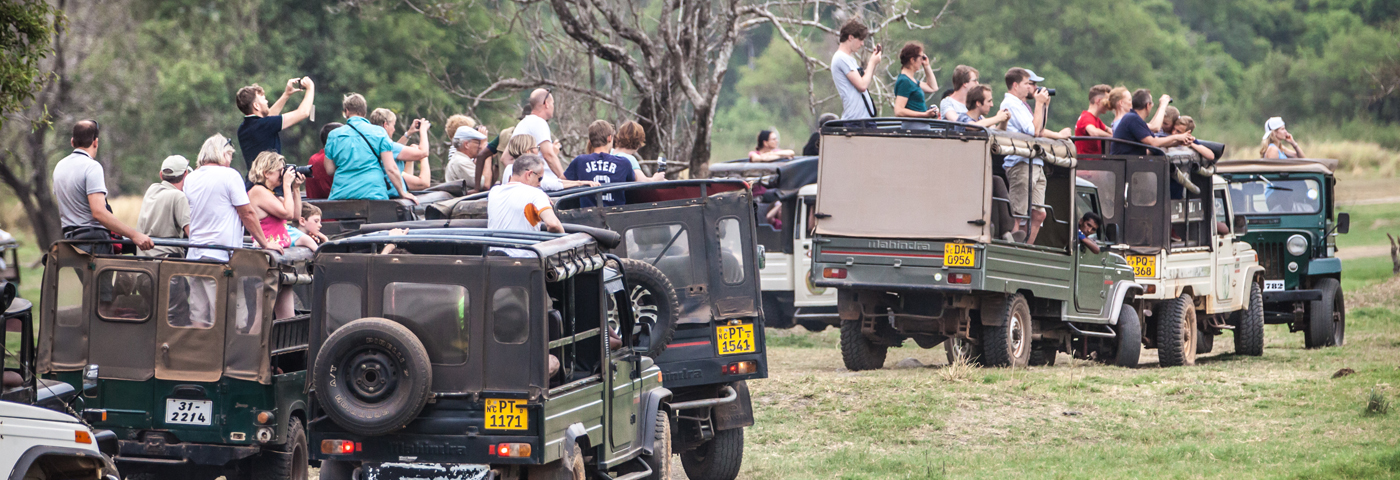Tourism is about connections. Connecting to another place. Connecting with friends and family. Connecting to nature. It follows, therefore, that the better the connection, the more one connects, the richer the experience becomes.
This is a key premise of most forms of responsible and sustainable tourism. We stay in places that are more in harmony with their surroundings, more in touch with the people we are interested in encountering – in essence more connected to the places we visit. By contrast, the more ‘touristy’ the experience – the cruise ships and all inclusive resorts and theme parks – the more detached and disconnected it is assumed that people become.
In my most recent blog, I wrote about how the increasing omnipresence of 4G mobile signal and wifi is enabling us all to remain connected to those back home, and how this connection also disconnects. Two nights ago my wife and I slept in an overnight bird hide here in the Kruger Park – just us, and nothing but the roar of a lion waking us up at 2am. Well, almost nothing – the mobile signal was strong enough that it was also possible to share photos of the sun setting with our families back in the UK and reassure them that we were safe. Nice in one way, but also stopping us from being fully immersed in the experience happening all around us.
Of course we can always just switch off our data, or turn our phones to airplane mode. But sitting on the terrace of one of the camps yesterday, I noted how things had changed. When I first came 10 years ago, everyone was sat staring out across the river, binoculars in hand, looking at wildlife. Yesterday, half the people there were making the most of the signal, and staring into their phones.
There are other ways digital connectivity is changing the way we relate to the natural world. I love the stargazing app on my phone, which means I can just point it into the night sky and identify the stars and planets overhead. After years of failing to properly use old maps and books to work out what was happening on any given night, this app really does work. Because now when I look up, after a few days practice, I know where to find Jupiter and Saturn without the app’s assistance.
But here in the Kruger there is also an increasing number of GPS-linked wildlife apps, where people can register sightings as they see them, and others can use the app to find out what might be nearby. Great if your only interest in nature is ticking off a few iconic species. But they change the way people interact with the Bush. It is no longer enough just to be here. If we are unable to disconnect from the world outside the park for a few days, what chance is there of people who have downloaded the app not using it, not discovering that a lion is nearby, and not then all racing towards its last known location – probably to be disappointed since it is now asleep behind a bush, unlikely to move again before sunset? How long will people sit and watch a family of mongoose for, if their app keeps alerting them that there just might be a leopard less than 2km away?
This Big Five mentality causes traffic jams of cars craning for a look at a distant lion. It also stretches far beyond safari, and lies at the root of overtourism. Famous churches and galleries that were once places of quiet contemplation have become noisy backdrops for crowds of us tourists to photograph ourselves in front of, upload to Instagram and shuffle on.
What is to be done? The best guides I have been with in the last few weeks – and always, wherever I have been around the world – are not those who can find me the lion. They are those who can park our jeep under a mopane tree and fascinate with stories about how it releases a toxin when animals nibble its leaves, so as to protect itself from being over eaten. Or how its name means butterfly, on account of the way its leaves are shaped. Leaves that it opens and closes like wings to protect them from the sun. Or how there are male and female trees, and when the seeds are cracked open they smell of turpentine. Or that its Latin name is Colophospermum mopane, which refers to Colophon, the birthplace of Homer in Ionia, which was famous for its rosin, a substance obtained from turpentine. Because here’s the thing, I’ve been here for three weeks and seen one leopard. I have probably seen a million mopane, however knowing stories and more about these abundant, marvellous trees make driving through them for hours at a time a lot more interesting.
Whether we run a local hotel or tour company, write travel blogs or create connectivity apps, the stories we tell, the things we choose to highlight and focus on, play a huge role in defining what the ever-growing number of tourists get excited about. There’s enough space for everyone in this world, but if this industry’s marketing endlessly prioritises the same stories we will continue to create bottlenecks around them.
Instead, tourism can help people see that every animal is fascinating, every culture has value, every painting is the result of hundreds of hours of concentrated considered genius. This isn’t about better managing tourism as an industry. It’s about rethinking it to help us all – whether we are on holiday or not – better connect to the world we are lucky enough to live in.



Chapeau, Jeremy. It’s about visiting faces, not places
thanks for sharing your interesting ‘story’